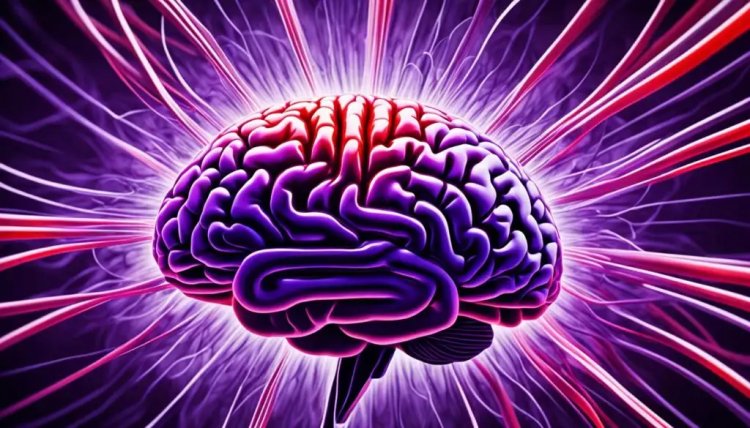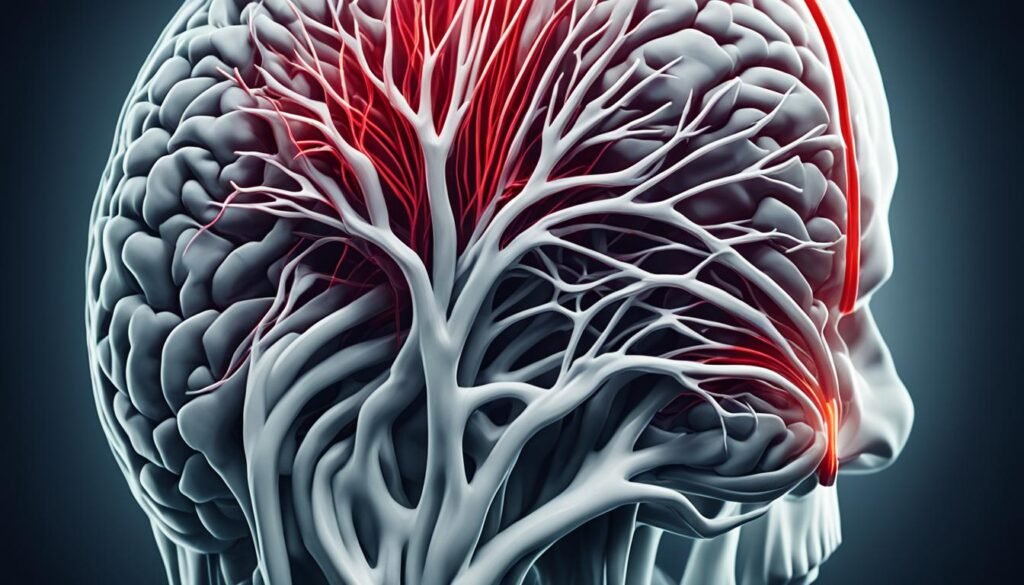Living with Chronic Migraines: Tips for Reducing Daily Disruption
Learn practical tips for living with chronic migraines and reducing daily disruption. Discover effective strategies to manage symptoms and improve your quality of life.

Living with chronic migraines presents daily challenges that can disrupt various aspects of life. Chronic migraines, defined as having headache symptoms on 15 or more days per month for at least three months, can severely impact one's ability to function. This blog provides practical tips for living with chronic migraines and reducing daily disruption, enhancing the quality of life for those affected
Understanding Chronic Migraines
Chronic migraines are more than just frequent headaches. They involve intense, throbbing pain often accompanied by nausea, vomiting, and sensitivity to light and sound. These symptoms can last from a few hours to several days, making it difficult to maintain daily routines and responsibilities.
Recognizing Basilar Migraine Symptoms
Basilar migraines, a subtype of chronic migraines, affect the brainstem and can cause severe neurological symptoms such as vertigo, double vision, and difficulty speaking. Understanding these symptoms is crucial for effective management. For more detailed information on basilar migraine symptoms and relief options, refer to this resource.
Identifying Triggers
Identifying and avoiding triggers can significantly reduce the frequency and severity of migraine attacks. Common triggers include:
- Stress: Emotional and physical stress can trigger migraines.
- Diet: Certain foods and beverages, like aged cheese, caffeine, and alcohol, can provoke migraines.
- Environment: Bright lights, loud noises, and strong smells are common environmental triggers.
- Hormonal Changes: Fluctuations in hormone levels, especially in women, can lead to migraines.
Keeping a detailed migraine diary helps identify specific triggers, making it easier to avoid them.

Developing a Daily Routine
Establishing a consistent daily routine is crucial for managing chronic migraines. Here are some tips:
- Regular Sleep Schedule: Maintain a consistent sleep schedule, going to bed and waking up at the same time every day. Irregular sleep patterns can trigger migraines.
- Balanced Diet: Eat regular, balanced meals. Avoid skipping meals to prevent drops in blood sugar, which can trigger migraines.
- Hydration: Drink plenty of water throughout the day. Dehydration is a common migraine trigger.
- Exercise: Engage in regular physical activity, such as walking or yoga, to reduce stress and improve overall health.
Managing Stress
Stress is a significant trigger for many migraine sufferers. Implementing stress management techniques can help reduce the frequency of migraines. Consider the following strategies:
- Mindfulness and Meditation: Practicing mindfulness and meditation can help calm the mind and reduce stress levels.
- Deep Breathing Exercises: Deep breathing exercises can provide immediate relief during stressful situations.
- Time Management: Prioritize tasks and avoid overcommitting to reduce stress. Break tasks into smaller, manageable steps.
- Relaxation Techniques: Activities like listening to music, reading, or taking a warm bath can help relax the body and mind.
Medication Management
Medication plays a vital role in managing chronic migraines. Here are some guidelines for effective medication management:
- Preventive Medications: Medications such as beta-blockers, anti-seizure drugs, and antidepressants can help prevent migraines.
- Acute Medications: Triptans, NSAIDs, and anti-nausea medications can alleviate symptoms during a migraine attack.
- Adherence: Take medications as prescribed by your healthcare provider. Do not overuse pain relievers, as this can lead to rebound headaches.
- Consultation: Regularly consult your healthcare provider to review your medication regimen and make necessary adjustments.
Alternative Therapies
Incorporating alternative therapies into your routine can provide additional relief from chronic migraines. Some effective alternative therapies include:
- Acupuncture: This traditional Chinese practice involves inserting thin needles into specific points on the body to relieve pain.
- Biofeedback: Biofeedback therapy teaches you to control physiological functions, such as heart rate and muscle tension, to reduce migraine frequency and severity.
- Cognitive Behavioral Therapy (CBT): CBT helps you identify and change negative thought patterns and behaviors that can trigger migraines.
- Herbal Supplements: Supplements like magnesium, riboflavin (Vitamin B2), and feverfew have shown promise in reducing migraine frequency.
Creating a Supportive Environment
Creating a supportive environment at home and work can help manage chronic migraines more effectively. Consider these tips:
- Light Control: Use soft, natural lighting in your home and workplace. Avoid fluorescent lights, and use blackout curtains to control sunlight.
- Noise Reduction: Use earplugs or noise-canceling headphones to reduce noise levels. Create a quiet space where you can retreat during a migraine attack.
- Scent Management: Choose fragrance-free cleaning products and personal care items. Avoid exposure to strong smells.
- Ergonomics: Ensure your workspace is ergonomically designed to reduce strain and discomfort.
Building a Support Network
Living with chronic migraines can be isolating. Building a support network can provide emotional support and practical assistance. Here’s how:
- Family and Friends: Educate them about your condition so they can offer understanding and support.
- Support Groups: Joining a migraine support group can provide a platform to share experiences and coping strategies with others who understand your challenges.
- Professional Counseling: Therapists and counselors can help you manage the emotional impact of living with chronic migraines.
Utilizing Technological Tools
Technology offers various tools to help manage chronic migraines more effectively. Consider incorporating these tools into your routine:
- Migraine Tracking Apps: Use apps to track your migraines, identify triggers, and monitor the effectiveness of treatments.
- Relaxation Apps: Apps offering guided meditation, breathing exercises, and relaxation techniques can help manage stress and reduce migraine frequency.
- Wearable Devices: Wearable devices that monitor physiological functions, such as heart rate and sleep patterns, can provide valuable insights for managing migraines.
Nutritional Considerations
Diet plays a crucial role in managing chronic migraines. Here are some nutritional considerations:
- Identify Food Triggers: Common food triggers include caffeine, alcohol, chocolate, and aged cheeses. Keep a food diary to identify and avoid your specific triggers.
- Balanced Diet: Maintain a balanced diet rich in fruits, vegetables, whole grains, and lean proteins. Avoid processed foods and artificial additives.
- Regular Meals: Eat regular meals to maintain stable blood sugar levels. Avoid skipping meals or fasting.
- Hydration: Drink plenty of water throughout the day to stay hydrated and reduce the risk of dehydration-induced migraines.
Exercise and Physical Activity
Regular physical activity can help manage chronic migraines by reducing stress, improving overall health, and increasing pain tolerance. Here are some tips:
- Low-Impact Exercises: Engage in low-impact exercises such as walking, swimming, or cycling to reduce the risk of triggering migraines.
- Consistency: Aim for regular, consistent exercise rather than intense, sporadic workouts.
- Listen to Your Body: Pay attention to your body’s signals and avoid overexertion. Rest if you feel a migraine coming on.
Sleep Hygiene
Good sleep hygiene is essential for managing chronic migraines. Here are some tips for improving sleep quality:
- Consistent Sleep Schedule: Go to bed and wake up at the same time every day, even on weekends.
- Sleep Environment: Create a comfortable sleep environment with a cool, dark, and quiet room. Use blackout curtains and earplugs if necessary.
- Limit Screen Time: Avoid screens, including phones, computers, and TVs, at least an hour before bedtime to reduce blue light exposure.
- Relaxation Routine: Develop a relaxing bedtime routine, such as reading a book, taking a warm bath, or practicing gentle stretches.

Coping Strategies for Migraine Attacks
Having effective coping strategies in place can help manage migraine attacks when they occur. Consider these tips:
- Rest in a Dark, Quiet Room: Find a quiet, dark room to rest during a migraine attack. Use eye masks and earplugs if needed.
- Cold Compress: Apply a cold compress or ice pack to your forehead or the back of your neck to reduce pain.
- Hydration: Drink plenty of water to stay hydrated, especially if nausea or vomiting occurs.
- Medication: Take your prescribed acute medication as soon as you feel a migraine coming on to prevent it from worsening.
Seeking Professional Help
If chronic migraines significantly impact your daily life, seeking professional help is crucial. Here are some steps to take:
- Consult a Neurologist: Neurologists specialize in treating migraines and can provide advanced treatment options.
- Regular Check-Ups: Schedule regular check-ups with your healthcare provider to monitor your condition and make necessary adjustments to your treatment plan.
- Pain Management Specialist: Consider seeing a pain management specialist if your migraines are particularly severe and difficult to manage.
Conclusion
Living with chronic migraines requires a multifaceted approach to reduce daily disruption and improve quality of life. By identifying triggers, developing a consistent routine, managing stress, and incorporating various treatments and coping strategies, individuals can effectively manage their condition. Building a supportive environment and network, utilizing technological tools, and seeking professional help are also crucial components of a comprehensive management plan.
By staying informed and proactive, individuals living with chronic migraines can take control of their condition and minimize its impact on their daily lives. Remember to consult healthcare professionals regularly to ensure you receive the most appropriate and effective treatments for your specific needs.
This blog provides a comprehensive guide for those living with chronic migraines, offering a range of strategies to reduce daily disruption and improve the quality of life. By integrating these tips into daily life, individuals can better manage their condition and lead a more fulfilling life despite the challenges posed by chronic migraines.








